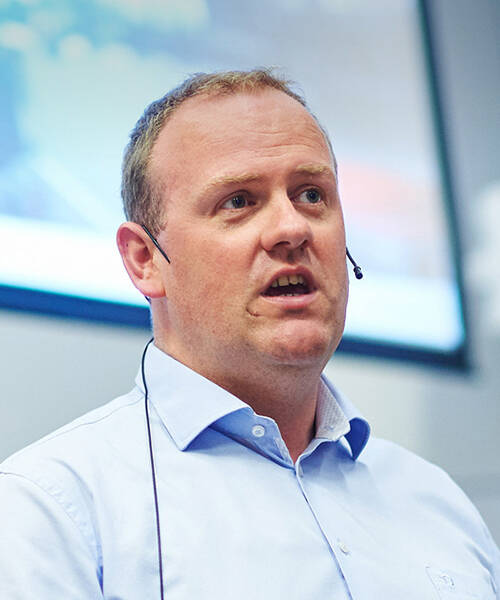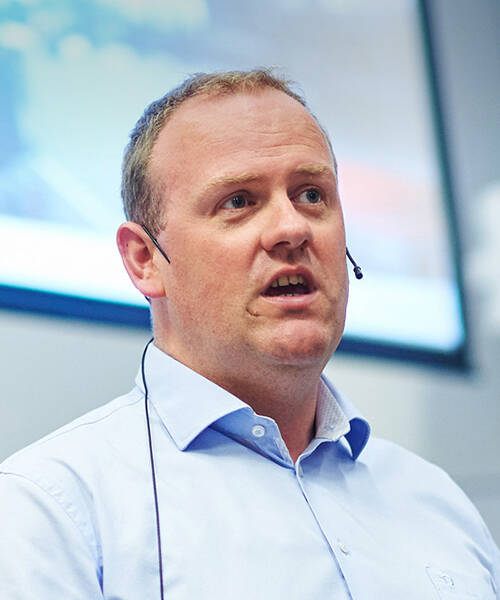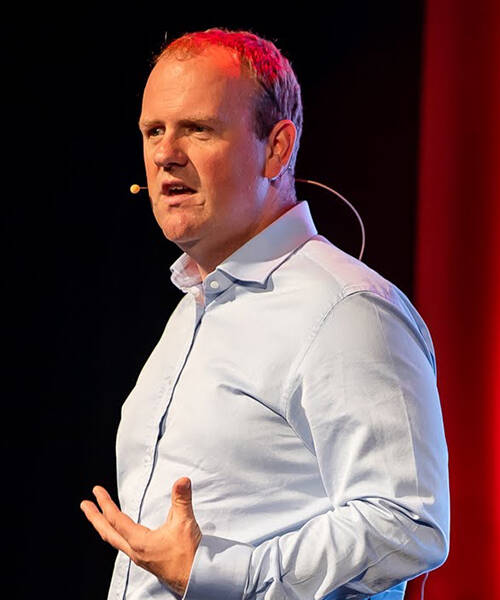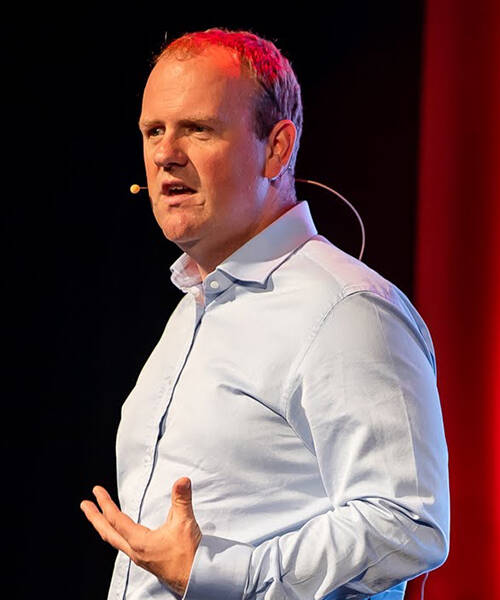“The second shift is that employees want to work for those companies. The new normal is both purpose and a paycheck.” Employees want to feel like they are contributing to something, and more than ever before are looking for meaning in their work. For many, shareholder value and quarterly results doesn’t cut it anymore.
“The third shift is with investors, as we’re seeing with the rise of impact investors and ESG funds.” (Portfolios of equities and/or bonds for which environmental, social and governance factors have been integrated into the investment process.)
Combined these factors are changing the way business is done.
So what is preventing businesses putting a cynical spin on doing good, and simply pretending? “We’re living in an age of radical transparency.” Consumers can see through the veil of marketing and are increasingly willing to call out companies not living up to the promises they’re making. “The companies that are succeeding in this space embrace that idea and understand they need to pay more than just lip service to it.”


Sri Lanka-born Afdhel Aziz calls himself a storycatcher, and he focuses on those stories that inspire people and businesses to make the world a better place. Because business can be a force for good, it needs to be a force for good in the eyes of a new generation of consumers. “Good is the new cool, but it’s important to note this isn’t a trend. Cool is often considered a temporary thing, but what we’re now seeing is that the idea business can be a force for good is transforming capitalism.”
He ascribes this transformation to three major shifts.
“The first is that consumers want to buy products or services from companies that are doing good in the world.” Companies are being judged on their purpose and values, not just on their product and price.


The power of purpose - Afdhel Aziz
Van Belleghem: “COVID-19 has been a ten year leap forward when it comes to digitalization. We live in a hybrid world where every offline interaction has an online component. Digital ease of use has become absolutely self-evident.” He emphasizes that digital does not mean virtual, but rather that digital has entered the ‘real world’ and become a part of our physical interactions, like how a restaurant experience becomes paired with online reviews or how artificial intelligence is being used to personalize menus based on previous visits and algorithmic learning. It’s all integrated. The step after this asks for a company to be a partner in life to their consumers. “You must understand the life story of your customers and add value to that. Be a partner in life.” Anticipate the needs of your customers and fill those needs before they even realize they have them. The final step is where purpose really shines: change your world.
Customers are looking for companies that make a difference, but at the same time aren’t expecting miracles or grand promises. It’s about changing your world instead of the world. A single area of focus in which to enact meaningful change for the better is worthy enough. Does your company rely on plastic, for example? Then taking steps towards reducing that dependency or turning a negative environmental impact into a positive impact is important. Do you rely on imported agricultural goods? Then ensure safe and healthy working conditions for everyone along the supply chain. The larger the company, the larger the expectation of a positive impact on the big issues the world faces.



Belgium-born Steven van Belleghem is an international thought leader on customer experience and has written several bestselling books on what the consumers of tomorrow are looking for in a company. He outlines how a purpose-driven company is essential in creating an irresistible offer. “It starts with the customer and builds on that.” To begin with a business needs to have an excellent product or service. Mediocrity is a death sentence in today’s crowded market. The next step requires a company to have an outstanding digital user experience.
Steven van Belleghem - The offer you can’t refuse
Corporate purpose has become a bit of a buzzword, but at the same time it’s an important topic of concern that takes center stage for many consumers, especially to younger millennials and generation Z. Trendwatchers and experts around the world are weighing in on why purpose is important for any company going forward. The opinions of international speakers Steven van Belleghem and Afdhel Aziz.
Jelle Steenbergen Wouter Noordijk
a force for
good


Trendwatchers on purpose

TREND WATCH
4 min
trendwatchers on purpose
So what is preventing businesses putting a cynical spin on doing good, and simply pretending? “We’re living in an age of radical transparency.” Consumers can see through the veil of marketing and are increasingly willing to call out companies not living up to the promises they’re making. “The companies that are succeeding in this space embrace that idea and understand they need to pay more than just lip service to it.”


“The second shift is that employees want to work for those companies. The new normal is both purpose and a paycheck.” Employees want to feel like they are contributing to something, and more than ever before are looking for meaning in their work. For many, shareholder value and quarterly results doesn’t cut it anymore.
“The third shift is with investors, as we’re seeing with the rise of impact investors and ESG funds.” (Portfolios of equities and/or bonds for which environmental, social and governance factors have been integrated into the investment process.)
Combined these factors are changing the way business is done.
Sri Lanka-born Afdhel Aziz calls himself a storycatcher, and he focuses on those stories that inspire people and businesses to make the world a better place. Because business can be a force for good, it needs to be a force for good in the eyes of a new generation of consumers. “Good is the new cool, but it’s important to note this isn’t a trend. Cool is often considered a temporary thing, but what we’re now seeing is that the idea business can be a force for good is transforming capitalism.”
He ascribes this transformation to three major shifts.
“The first is that consumers want to buy products or services from companies that are doing good in the world.” Companies are being judged on their purpose and values, not just on their product and price.
The power of purpose - Afdhel Aziz
Customers are looking for companies that make a difference, but at the same time aren’t expecting miracles or grand promises. It’s about changing your world instead of the world. A single area of focus in which to enact meaningful change for the better is worthy enough. Does your company rely on plastic, for example? Then taking steps towards reducing that dependency or turning a negative environmental impact into a positive impact is important. Do you rely on imported agricultural goods? Then ensure safe and healthy working conditions for everyone along the supply chain. The larger the company, the larger the expectation of a positive impact on the big issues the world faces.



Van Belleghem: “COVID-19 has been a ten year leap forward when it comes to digitalization. We live in a hybrid world where every offline interaction has an online component. Digital ease of use has become absolutely self-evident.” He emphasizes that digital does not mean virtual, but rather that digital has entered the ‘real world’ and become a part of our physical interactions, like how a restaurant experience becomes paired with online reviews or how artificial intelligence is being used to personalize menus based on previous visits and algorithmic learning. It’s all integrated. The step after this asks for a company to be a partner in life to their consumers. “You must understand the life story of your customers and add value to that. Be a partner in life.” Anticipate the needs of your customers and fill those needs before they even realize they have them. The final step is where purpose really shines: change your world.
Belgium-born Steven van Belleghem is an international thought leader on customer experience and has written several bestselling books on what the consumers of tomorrow are looking for in a company. He outlines how a purpose-driven company is essential in creating an irresistible offer. “It starts with the customer and builds on that.” To begin with a business needs to have an excellent product or service. Mediocrity is a death sentence in today’s crowded market. The next step requires a company to have an outstanding digital user experience.
Steven van Belleghem - The offer you can’t refuse
Corporate purpose has become a bit of a buzzword, but at the same time it’s an important topic of concern that takes center stage for many consumers, especially to younger millennials and generation Z. Trendwatchers and experts around the world are weighing in on why purpose is important for any company going forward. The opinions of international speakers Steven van Belleghem and Afdhel Aziz.
Jelle Steenbergen Wouter Noordijk
a force for
good


Trendwatchers on purpose
4 min











